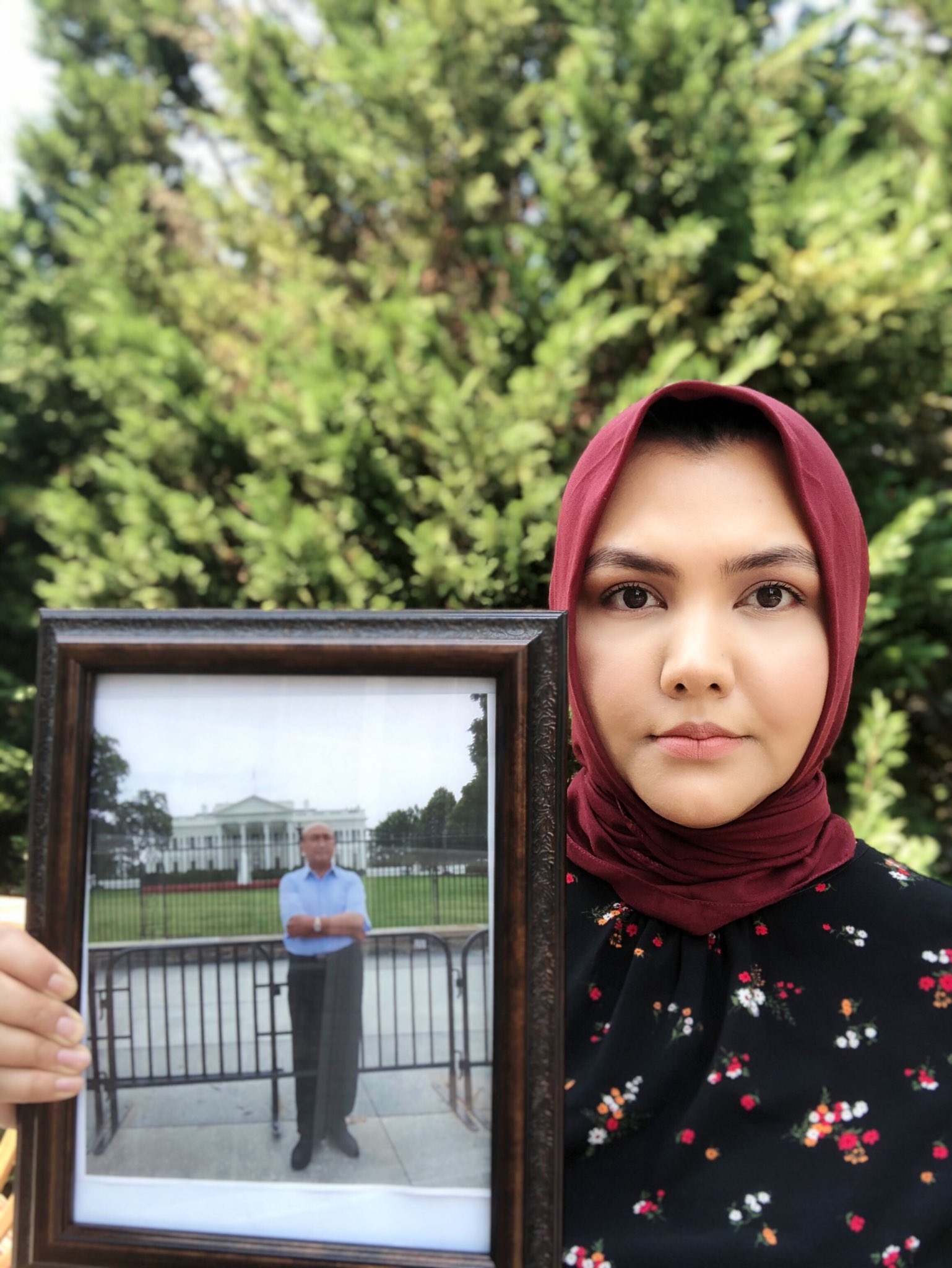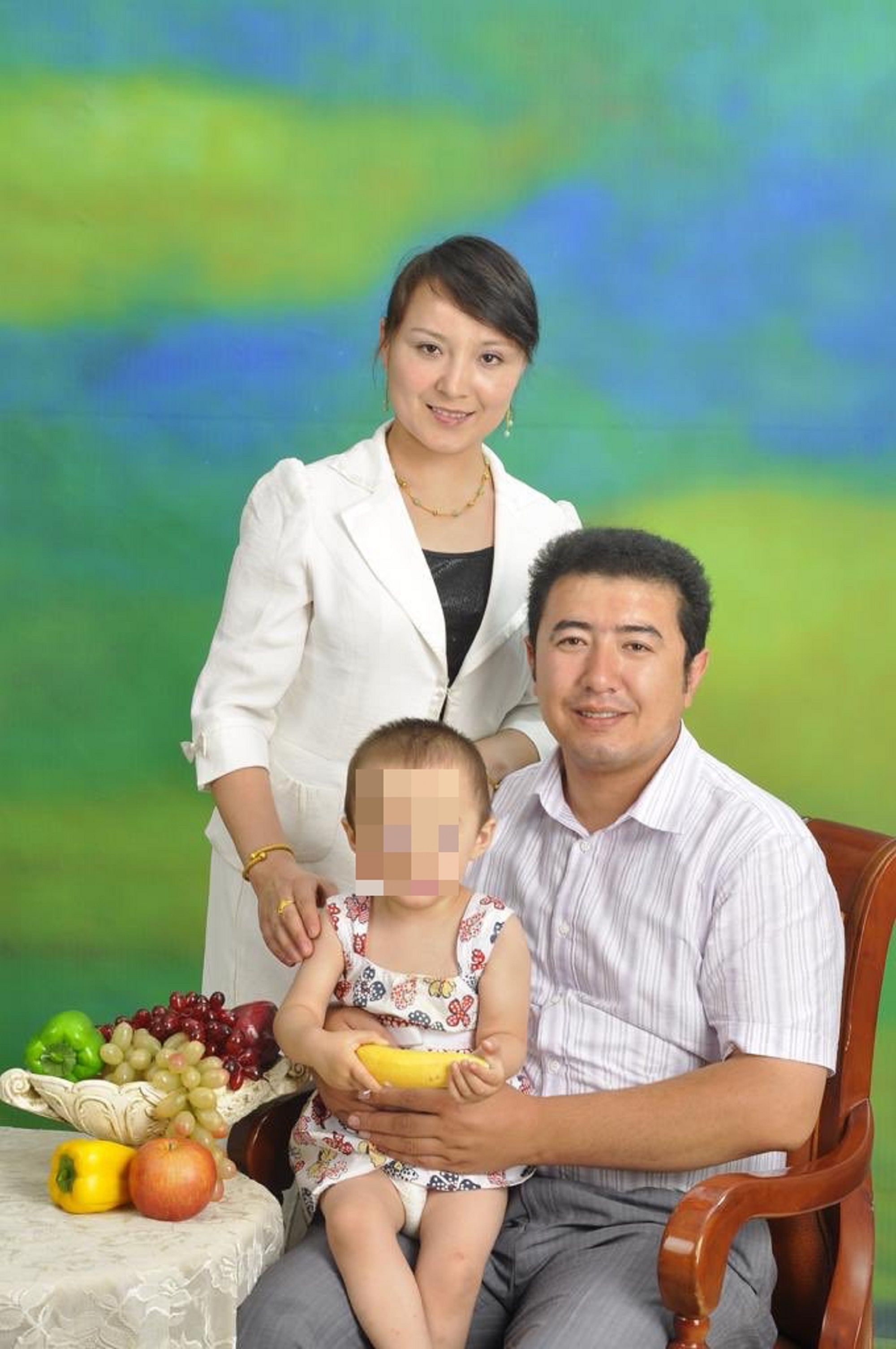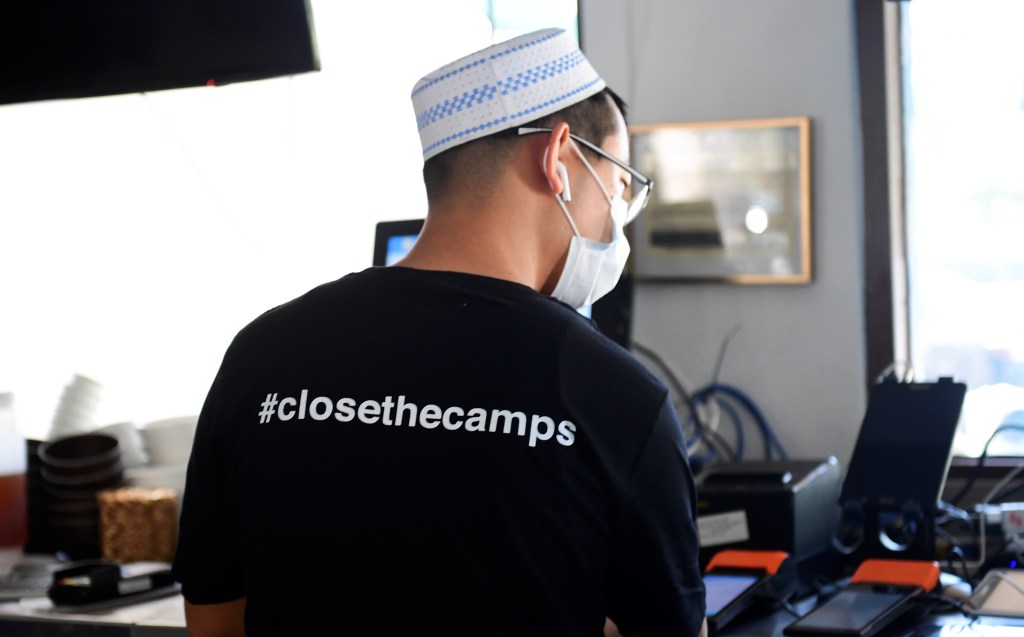Recent reports emerging from China’s northwestern territory of Xinjiang are disturbing. People have been handcuffed to buildings, homes have been sealed off and marked for surveillance, and residents from high-rise apartment buildings have filmed themselves screaming out of windows.
China, where COVID-19 first emerged in the city of Wuhan in December, continues to celebrate its victory in its fight against the virus. As of Wednesday, September 2, the country recorded about 89,000 cases and a little over 4,700 deaths.
Videos by VICE
With local transmission rates on the decline, life has steadily returned to normal in many Chinese cities, which endured sweeping lockdowns earlier this year before the pandemic was in full swing. But life remains in limbo for residents of Xinjiang who face draconian measures of suppression under the guise of combatting the coronavirus.
Chinese Communist Party officials (CCP) said this month that they had “effectively contained” a cluster of infections in the Xinjiang capital of Urumqi after 902 cases were officially reported, defending the “wartime” measures taken in Xinjiang. However, no new cases of the coronavirus have been reported in the region since August 16, though strict quarantine measures remain in place.
“Unlike the clustered infections in [cities like] Beijing, which adopted precise, anti-epidemic measures by sealing off affected communities, the same measures did not suit Xinjiang, where people enjoy being outdoors and gathering together in large groups,” Zhang Yuexin, an infectious disease medical expert from the Xinjiang Medical University and a member of its hospital’s anti-epidemic team, told Chinese state tabloid Global Times state newspaper last month.
Zhang added that large-scale testing measures needed to be conducted to track community transmissions.
“Testing all residents in Xinjiang will reveal how many and what kinds of people were infected,” Zhang said.
Disturbing accounts from members of the ethnic Uighur Muslim community, which remains vulnerable to persecution from the Chinese government, continue to emerge. Many Uighurs, desperate to evade censorship on the Chinese internet, took to alternative social media platforms like Twitter and Tiktok to reach outside audiences and share the horrors of their daily life.
Several videos and photos began to make the rounds on social media, including one disturbing video showing a group of residents at a Xinjiang hospital being forced to consume a suspicious liquid passed off as traditional Chinese medicine by state health authorities. Some said the drink made them feel weak and nauseous.
The social media posts caught the attention of several rights groups and Uighur activists who condemned the abuses that were unfolding in Xinjiang.
Sophie Richardson, China Director at Human Rights Watch, told VICE News that the Chinese Communist Party, like other authoritarian governments, was using the COVID-19 pandemic to justify inhumane measures on persecuted communities.
“The Chinese government has worked hard to mute calls for independent investigations into serious human rights violations in Xinjiang,” Richardson said.
“Now they are saying that the region has to be locked down due to the pandemic,” she continued. “But the Communist Party of China, like other authoritarian governments around the world, has no trouble sacrificing people’s lives and rights during this health crisis to deny investigations and accountability.”
Activists like Erkin Sidick, president of the Uyghur Projects Foundation, condemned the Xinjiang crackdown in a series of tweets and posted video of the “quarantine” facilities used to keep the population on lockdown.
Australian-based Uighur scholar Mamtimin Ala told VICE News that the reality on the ground was “especially dire for many Uighurs still living in Xinjiang”.
“The safety of their homes has been compromised and turned into convenient prison environments by the CCP,” Mamtimin said. “The COVID-19 lockdowns in Urumqi create the perfect opportunity for the CCP to continue their genocides against the Uighur community.”
“Locking Uighurs in their homes and even chaining them only results in added suffering and the whole operation is covered up by the pretext that residents in Urumqi, regardless of their nationalities, are subject to these measures in order to keep the virus under control,” he added.
For the estimated scores of Uighur Muslims currently being held in various state-sponsored detention camps around Xinjiang, the health crisis is especially dire.
Subi Mamat Yuksel’s ailing father, 71-year-old Mamat Abdullah, is missing. He disappeared on April 29, 2017, and his current whereabouts is unknown.
His daughter Subi continues to search for him and said that her father is now in “life-threatening danger” because the coronavirus is spreading throughout prisons and detention centers around the world, particularly in Xinjiang.
“My father recovered from kidney cancer but still has major health issues, like diabetes and high blood pressure,” she told VICE News. “The conditions in Chinese jails and camps in Xinjiang are poor. They are not hygienic facilities and my father, along with other innocent prisoners, could be severely infected by the virus and face harsh treatment.”
“It’s painful because we can’t do anything,” she added.

“What worries my family the most is that we are not provided any information about his health and we do not know the true status of his whereabouts,” she added. “We hired a human rights lawyer and contacted several embassies but still haven’t heard anything.”
Mirehmet Ablet, who hails from Kashgar City, said that Uighurs were forced to take medicine several times a day and in full view of medical health authorities.
“Many of them do not know what the pills or medication is and they do not dare to ask because of the predicament they are in,” he told VICE News.
He said his younger brother Miradil, who he says was kidnapped by Chinese police and put into a state prison camp, is not well.
“I believe my brother is already very weak from his time in the camps and I now worry every day that he is being forced to take the unknown medicine,” he told VICE News.

“Like other prisoners in the camps, he is very vulnerable to the virus,” Mirehmet said.
“What the Communist Party is doing to Uighurs is inhumane and cruel. The COVID pandemic has given them the perfect excuse to persecute members of our community and lock more people up,” he added.
He questioned why the lockdown in Xinjiang was still allowed to go on despite having no new cases of infection.
“It’s been more than a month and Uighurs, like my brother, are still locked away. China has taken advantage of the pandemic and made full use of it, diverting attention away from human rights violations and committing crimes against Uighurs like my brother—passing it off as virus control measures.”
“I worry about my brother and whether he can ever recover, from not only the physical damage of the camps but the mental damage too.”
More
From VICE
-

Photo by Miriam Espacio on Pexe -

-

Images by WWE / Collage by Haley Miller -

XNY/Star Max/GC Images


